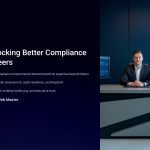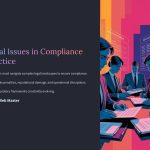 As global compliance requirements become increasingly complex, regulatory professionals are now expected to demonstrate not just theoretical knowledge, but actionable, hands-on expertise. Recent updates like the EU’s Digital Operational Resilience Act (DORA), and the SEC’s heightened enforcement on ESG disclosures, are creating a high demand for practical compliance competencies. This shift emphasizes the importance of upskilling in areas like risk assessment, audit readiness, and regulatory tech (RegTech) utilization. Those who can navigate these demands with fluency in real-world applications are seeing higher career mobility, better pay, and greater trust from executive teams. By honing specific skills—such as data-driven monitoring, legal interpretation, and cross-border compliance—you can future-proof your role and lead strategic compliance transformation across industries.
As global compliance requirements become increasingly complex, regulatory professionals are now expected to demonstrate not just theoretical knowledge, but actionable, hands-on expertise. Recent updates like the EU’s Digital Operational Resilience Act (DORA), and the SEC’s heightened enforcement on ESG disclosures, are creating a high demand for practical compliance competencies. This shift emphasizes the importance of upskilling in areas like risk assessment, audit readiness, and regulatory tech (RegTech) utilization. Those who can navigate these demands with fluency in real-world applications are seeing higher career mobility, better pay, and greater trust from executive teams. By honing specific skills—such as data-driven monitoring, legal interpretation, and cross-border compliance—you can future-proof your role and lead strategic compliance transformation across industries.

Understanding the True Scope of Compliance Work
Regulatory compliance isn’t just ticking boxes or fulfilling policy standards—it’s about embedding ethical risk-thinking into business processes. To excel, professionals need a robust understanding of the entire compliance lifecycle: from regulation interpretation to implementation, training, monitoring, and reporting. Start by developing a deep comprehension of your industry’s regulatory ecosystem. For example, financial services professionals should master anti-money laundering (AML) protocols, while healthcare compliance officers must stay ahead of HIPAA or GDPR mandates. Mapping out your responsibilities within this context is a crucial first step to identifying and filling practical skill gaps.


Mastering Interpretation of Legal and Regulatory Texts
A top challenge for compliance professionals is interpreting legalese into practical, actionable frameworks. This requires not only familiarity with statutes, regulations, and directives but also understanding the intent behind them. Practice summarizing and applying key clauses in your organization’s operational context. Use case studies, compliance manuals, and regulatory FAQs to test your interpretation skills. Additionally, stay updated on regulatory changes through trustworthy sources like Lexology, the SEC’s rulemaking updates, or European Commission regulatory portals. Over time, this routine builds a reflexive, context-aware approach to applying laws.

Developing Audit and Risk Assessment Proficiency
Every compliance role intersects with audits—be it internal reviews, external examinations, or regulatory audits. To build hands-on capability, familiarize yourself with the audit cycle: scoping, risk identification, control assessment, data collection, documentation, and remediation. Consider mock audits or participate in cross-functional reviews to experience real audit dynamics. Additionally, understanding risk matrices, heat maps, and control effectiveness evaluations will position you as a go-to professional for pre-audit preparation. This skillset not only minimizes regulatory exposure but enhances stakeholder confidence.

Leveraging RegTech and Compliance Automation Tools
With the increasing adoption of compliance automation, learning how to use RegTech tools is a game-changer. From transaction monitoring systems to AI-powered policy management platforms, these technologies enhance both accuracy and efficiency. Learn platforms like ComplyAdvantage, LogicGate, or IBM OpenPages. Hands-on familiarity with these tools can elevate your workflow, reduce manual oversight, and showcase your readiness for digital transformation in compliance. Consider pursuing vendor-led certifications or enrolling in practical sandbox programs that simulate real compliance environments.

Enhancing Communication and Ethical Decision-Making
Regulatory professionals often find themselves as the bridge between legal teams, operations, and executive boards. Being able to communicate compliance priorities in a persuasive, business-aligned tone is a vital skill. Craft messages that link compliance with business outcomes—reduced fines, enhanced reputation, or smoother audits. Furthermore, embed ethical decision-making into your daily role by practicing conflict-of-interest analysis, whistleblowing protocol awareness, and governance board reporting. These competencies not only elevate your leadership appeal but also reflect high trustworthiness in complex scenarios.

Pursuing Professional Certifications and Practical Learning
While on-the-job experience is invaluable, certifications like Certified Compliance & Ethics Professional (CCEP), Certified Regulatory Compliance Manager (CRCM), or International Association of Privacy Professionals (IAPP) credentials provide structure and credibility. They also offer case-based learning, networking opportunities, and continuing education that simulates real-world regulatory dilemmas. Supplement these with interactive learning like compliacompliance skill enhancementnce simulation labs, e-learning modules, and peer collaboration tools. The continuous upskilling cycle signals to employers your adaptability and long-term value in a compliance-driven world.
*Capturing unauthorized images is prohibited*


